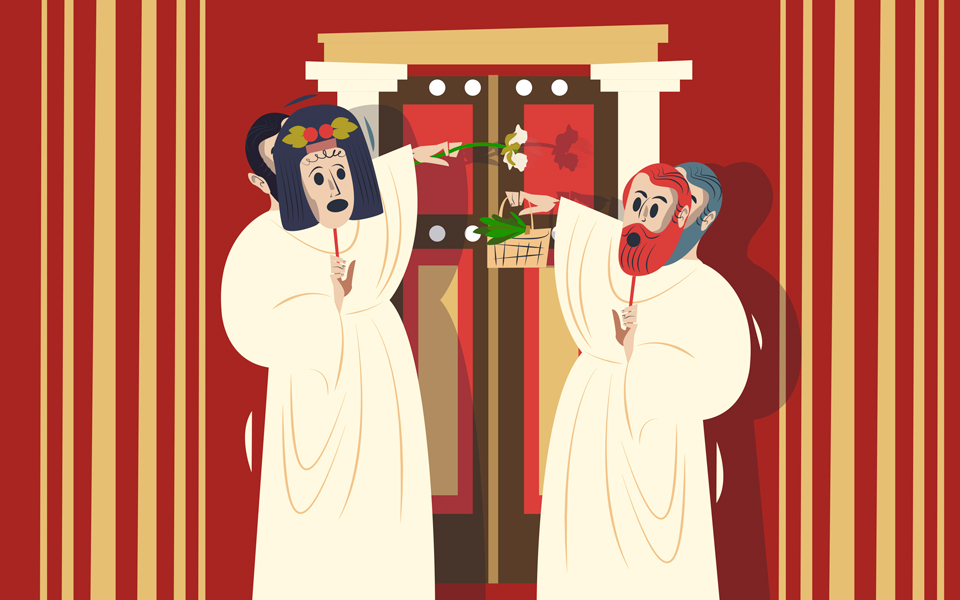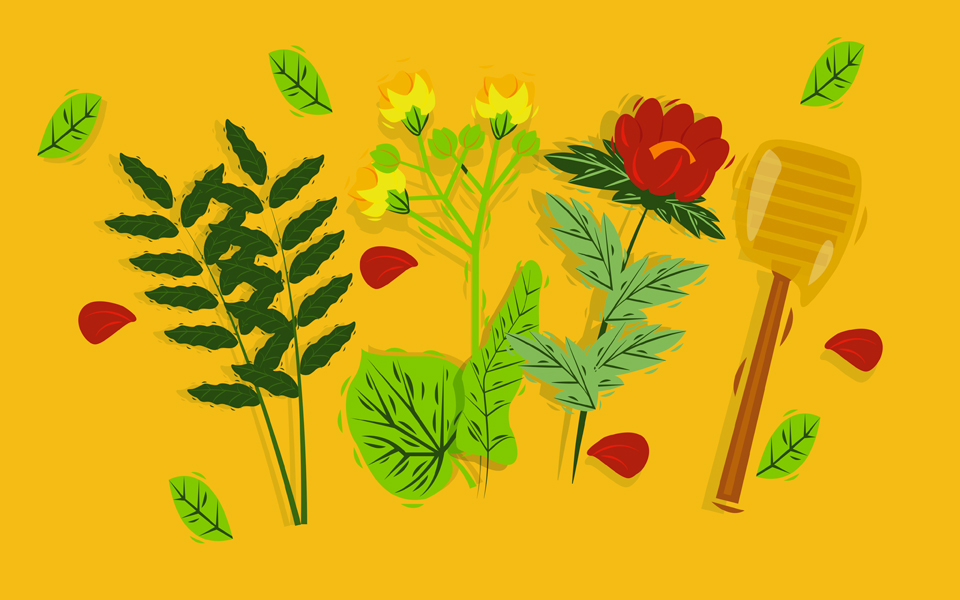“If only we continue to examine the practices, writings and teachings of ancient Greek physicians and pharmacists, our knowledge can leap ahead by at least 6000 years. But if we prove indifferent to the vast knowledge of the ancients, we will stay behind by 3,500 years,” says pharmacologist Dimitris Kallimanis, whose passionate life mission is to investigate, experiment with and teach about plants and the plethora of sophisticated and fascinating data related to their hundreds of species. The expert, who sustains that what today is commonly described as “folk medicine, or natural remedies” based on plants is no less than a serious, noteworthy science, states that according to historical documents, the first person to analytically expound on the benefits and uses of herbs was the epic poet Homer (born circa 850BC, although his exact period of existence remains a mystery to scholars). Kallimanis reveals that his globally influential writings such as ‘The Iliad’ and ‘The Odyssey’ are packed with recipes and practices based on herbs: “from Homer we learned, for example, that Achilles used Achillea millefollium – a hemostatic, wound-healing and powerfully antiseptic agent that is still used today – to treat those who fought by his side, or that the family of herbs most favored by the ancient Greeks was Liliaceae.”
According to history, Theofrastus (372-287 BC), Aristotle’s successor at Athens’ Peripatetic School, was ancient Greece’s “father of botany.” Among a plethora of writings, he is the author of the major botanical treatises ‘Enquiry into Plants’ and ‘On the Causes of Plants’. Kallimanis and many other experts of his caliber sustain that the doctor and apothecary Dioscorides (40-90AD) was the real father of botany. His five-volume work ‘De Materia Medica‘, was translated into Arabic and Latin in the 12th and 13th C and in German, Spanish, French, Italian and finally English after the 16th C), emerging as the basis of the world’s botanical knowledge. Indeed, the knowledge of Dioscorides, who followed a holistic and allopathic doctrine reminiscent to that practiced by Hippocrates, continues to startle academics to this day: it was he who first created the systematic categorization of some 500 plants and around 1000 of their medical uses, their varying dosages for treating ailments, and their side effects.

© Illustration by Philippos Avramides
“However, there is a vast time gap between the botanical teachings of Homer and those of Dioscorides,” Kallimanis notes, “and the individual who played a great role in spreading knowledge on herbs within that time is somewhat unexpected; enter one of Greece’s most legendary figures in poetry, drama and creative thought – Aristophanes!” In an era when it was widely feared that Greece and its influence would be obliterated by the Peloponnesian War, the bard (444 – 385 BC) cunningly managed to share precious information with the masses. He subtly weaved substantial quarantines of knowledge through the words recited in his highly popular comedies, making one of the lines recited by the chorus in his play, ‘The Babylonians’, especially poignant, when they say that “the author-director of comedies has the hardest job of all.” Kallimanis explains that through both simple terms for the common-folk to coded, more refined information directed at educated viewers, all within the same text, Aristophanes managed to distribute ancient recipes based on herbal medicine to the greater public. Kallimanis says that doing so he “ignited and bolstered the knowledge of common people and all levels of medical practitioners, even some of the information remains challenging to decode to this day.”
Throughout the ages, the information and understanding of botanical medicine and its usage garnered from the ancient world was made accessible to the literate via Greek and translated documents that could be found mainly in monasteries, especially those on the Holy Peninsula of Mount Athos. The uneducated, however, spread knowledge verbally, with villagers across Greece developing and transferring further learning and expertise to their communities by combining proven theories and techniques and hands-on experimentation. Making the best of nature’s bounty developed from the profoundly pragmatic need to survive, as throughout the centuries villagers were left to their own devices when it came to individual and community’s healthcare. The main priority in using herbs and plants throughout rural Greece was, and remains, the need to systematically and effectively treat physical and spiritual ailments, from the common headache, melancholy and respiratory disorders to broken bones, madness and heart disease. Meanwhile on the dark side, herbs have also played a significant role in magic and superstitious rituals for breaking spells, clearing the cloying effects of the evil eye and other psychic ‘disorders’. “Magicians and faith healers carved out a niche for themselves among frightened, mainly uneducated individuals, often over-exceeding dosages and invoking divine powers or satanic entities to bring them into contact with other worlds, and to generate intensely hallucinogenic effects” Kallimanis says, adding that “their favorite plants were mainly those from the Solanacaeae (or nightshade) family, such as poisonous Belladonna and hallucinogenic Mandrake, some of which are highly toxic and can have serious or even deadly results. “Today, these magicians would be able to teach us about a whole host of other-worldly experiences, and we could call them magician-physicians – however, they didn’t have the ethics of a doctor or pharmacist, so I certainly wouldn’t call them that myself.”
* Many thanks to Dimitris Kallimanis, whose Greek-language book ‘Natural Cosmetics and Therapies from Ancient Greece and the Byzantium until the Present Day’ (Afoi Kyriakidi) will be on the bookstands as of November 2016.
RECIPES WITH HERBS

TIREDNESS
- 1 large tbsp pine or thyme honey with 1.5 tsp pollen. This is a miraculous energizer that also decreases appetite, strengthens sperm in men and helps lessen period pains in women.
- An excellent breakfast that will turn you into a power-house: A waffle drizzled with honey, Royal Jelly and 1/3 of a tsp pure cacao. Not recommended for people with a tendency for high blood pressure, suffer from heart problems or who are sensitive to caffeine. Has a powerful aphrodisiac effect.
MELANCHOLY
- Tea made with Tilio (Linden) flowers and leaves, flat-leaf basil (known as Italian or black basil), red rose petals, all in equal measure. Boil water and steep ingredients for 15-20 minutes.
- Valerian (root, finely chopped – you can find this at most bio food stores)
- And flat-leaf or black basil. This creates a sense of calm and euphoria.
- Spearmint or mint and basil tea offers a sense of wellbeing and is very good for the skin.
- Mint, linden and red rose petal (all in equal measure) tea. The absolute antidote for melancholy. Drink up to six times per day.
HEADACHE
- Lavender, red rose petals, linden flowers & leaves and finely chopped valerian root, all in equal measure, steeped in boiled water for 15-20 minutes.
- Massage the back of your neck and temples with a mixture of lavender, chamomile, linden and Hyacinth essential oils for three minutes.











